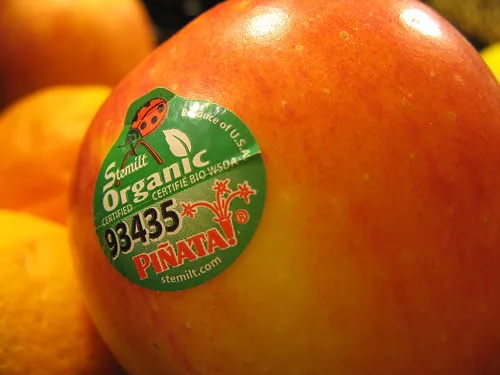
By: Terrence Mower
With the rapid growth of human civilization, the demand for food has increased and is expected to grow twofold by 2050 (Elferink and Schierhorn). Surprisingly, the number of farmers has seen the opposite effect. Today, there are about 2 million farms in operation in the US, a steep decline from 1935, when the number of farms peaked at nearly 7 million (Lepley). As a result, farmers are now overcompensating for crop and livestock production by using genetically modified organisms (GMOs) to boost plant growth for livestock and humans.
In fact, over 90 percent of corn, cotton, and soybean acreage in the United States is planted with genetically engineered (GE) seeds. However, contrary to popular belief, GMOs aren’t unhealthy at all. In fact, many genetically modified agricultural products have enhanced nutritional value. Even still, some are hesitant around GMO products. Companies should not label products for GMOs because it would be unnecessary, make shopping more difficult, and waste stickers and labels.
One might think that GMO labels will make it easier to choose which fruits to put in your shopping cart. For the most part, this assumption would be wrong. In reality, GMO labels make purchasing fruit more difficult. Imagine that each apple one needs to choose between is dotted with different warning labels, stickers, and barcoded. Sounds stressful, right?
Presence-focused labeling enhances buyers’ concerns about GMOs. It encourages them to pay greater attention to GMO information, and makes their choice more difficult (Journal of Marketing). This kind of warning confuses customers. In fact, it will make many so frustrated that they leave the store without any apples at all. Presence-focused labeling (“contains GMO”) makes consumers more reluctant to make a purchase in a category(Journal of Marketing). Labeling products as GMO or non-GMO is harmful to both the producer and consumer.
Not will labeling make shopping difficult, but the labels are also unnecessary. GMOs only benefit fruits and vegetables because they can be used to boost nutritional value and the value of the product. Spending the time and money to build new labeling factories is a waste because there’s no need to label something on whether it’s improved or not. Such policies would not contribute much to society except increase both concern and debt. Besides, there are much more pressing issues like climate change and war to deal with instead of labeling fruit.
Finally, labels waste a surprising amount of plastic. There are millions of fruits and vegetables in supermarkets around the world, all of which are already stickered. These stickers are all wasted because as soon as consumers purchase any stickered or labeled product, they immediately peel off the plastic and throw it away. Labels contribute to as many as 100 million pieces of waste ending up in landfills every week (Joe). Requiring both non-GM and GM products to be labeled would double the amount of stickers on fruit, sending another 5 billion stickers into the trash every year. This is a waste of money and extremely harmful to the environment both because stickers can be blown into rivers and lakes, and because landfills also pollute their surrounding environments.
GM products should not be required to have labels because it is unnecessary, mutually harmful, and environmentally damaging. As the population grows, so must the agricultural output. As a result, the shrinking agricultural workforce has begun to use GMOs to boost produce output. These GMOs not only increase growth, but can also be used to improve other areas like nutritional value. It is silly to label something as “normal” or “improved” when it doesn’t hurt anyone to leave it as it is. What will be damaging is when fruits and vegetables start being labeled. Consumers will be more worried and plastic pollution will increase. There’s no good reason to label genetically modified products.










